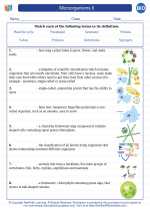Marine Biology
Welcome to the world of marine biology! This field of study focuses on the plants, animals, and other organisms that live in the ocean. It also explores the physical and chemical properties of marine environments. Let's dive into some key concepts and topics related to marine biology.
1. Marine Ecosystems
Marine ecosystems are diverse and complex systems that include coastal zones, open ocean, and deep sea habitats. They are home to a wide variety of organisms, from microscopic plankton to massive whales. Understanding the interactions and dynamics within these ecosystems is crucial for marine biologists.
2. Marine Biodiversity
The oceans are teeming with biodiversity, with countless species of fish, invertebrates, algae, and more. Studying marine biodiversity involves identifying, classifying, and understanding the ecological roles of these organisms. Conservation efforts also play a significant role in protecting marine biodiversity.
3. Oceanography
Oceanography is the study of the physical and chemical properties of the ocean. This includes the study of ocean currents, tides, waves, and the composition of seawater. Understanding oceanography is essential for comprehending how marine organisms are influenced by their environment.
4. Marine Conservation
Marine conservation focuses on protecting and preserving marine ecosystems and species. Human activities such as overfishing, pollution, and habitat destruction pose significant threats to marine environments. Conservation efforts aim to mitigate these impacts and ensure the long-term health of the oceans.
5. Human Impacts on the Marine Environment
Human activities, including climate change, pollution, and overexploitation of resources, have profound effects on marine ecosystems. Understanding these impacts and promoting sustainable practices is essential for the future of marine biology and the health of the oceans.
Study Tips
- Explore marine ecosystems by visiting aquariums, coastal areas, or participating in marine field trips.
- Read scientific literature and popular books on marine biology to deepen your understanding of the subject.
- Engage in hands-on activities such as marine organism identification and water quality testing.
- Stay informed about current issues and developments in marine conservation and research.
- Consider pursuing internships or volunteer opportunities with marine research organizations or conservation groups.
By immersing yourself in the world of marine biology, you can develop a deep appreciation for the ocean and its inhabitants while contributing to the conservation and understanding of these vital ecosystems.
[Marine] Related Worksheets and Study Guides:
.◂Biology Worksheets and Study Guides High School. Microorganisms II
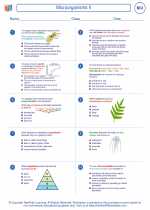
 Worksheet/Answer key
Worksheet/Answer key
 Worksheet/Answer key
Worksheet/Answer key
 Vocabulary/Answer key
Vocabulary/Answer key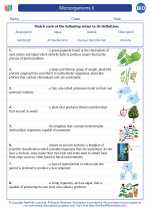
 Vocabulary/Answer key
Vocabulary/Answer key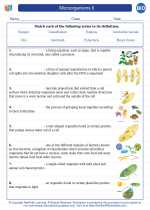
 Vocabulary/Answer key
Vocabulary/Answer key
 Vocabulary/Answer key
Vocabulary/Answer key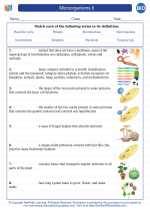
 Vocabulary/Answer key
Vocabulary/Answer key